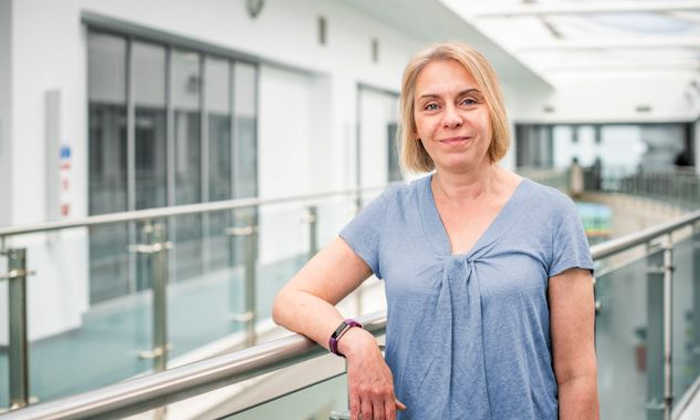
Vikki Goddard: Under-representation, does it matter?
Director of Faculty Operations for Biology, Medicine and Health, and EDI champion for the Professional Services, Vikki Goddard discusses under-representation in Professional Services at the University and why it does and should matter to us all.
Equality, Diversity and Inclusion are principles and values that many of us hold dear. We believe that we act in ways that foster their delivery and that achieving them makes our lives, and our University, a better place. But the reality of our position is different. We have very substantial under-representation of several groups across our staff base. Does this matter?
For the past two years I have been honoured to be the Professional Services ‘champion’ for EDI issues. This is something I feel passionately about, and I only wish I had more time to push issues forward. I’ve focussed on the Professional Services as the area that I know most about, but we have similar challenges across our University community. Here, I reflect on some of what I have found out over these two years, what we are trying to do to change things, and how we can all do more.
Improving the proportion of BAME staff
Across professional services, we have a particular challenge around representation of black and minority ethnic (BAME) staff. It’s not simple, and it’s not a single issue; it’s certainly not something we can address overnight. Over 25% of the working age professional population in Greater Manchester identifies as BAME. Our numbers in professional services across the University are 13% of our total staff. This percentage is increasing, but only very slowly (and more slowly than the proportion of BAME staff in the working population as a whole).
As concerning, is the way in which our figures show that we are employing staff. In grades 1 to 4, we have around 17% of staff who are BAME, in grades 1 and 2 (predominantly manual staff), it is over 20%. At grade 8 and 9 the proportion is 4%. We have a smaller proportion of senior managers who are not white than we did in 2012.
There are some colleagues who will find these figures shocking, others who will shrug their shoulders and say so what? We are able to attract and retain excellent people to work at the University, so why does this matter. My view is that it does matter, a lot, and I hope to convince some of you that it does.
A different perspective
I have often sat on interview panels and have identified the person who I think would be the best candidate for the role. Very often that person will be somebody like me, who appears to have similar values, ways of working, expectations. That person would no doubt fit in, I would be comfortable with them and hopefully they would fly high and succeed. But is that person the right choice for the team, for the University, for getting exceptional performance for the University as a whole? Probably not. Some of the best choices I have made in recruitment have been through picking the person who was different, who brought something new to the team, and made everyone think in a fresh way.
In essence, this is what diversity is about. Bringing different perspectives to a team of people will increase the creativity and innovation of the team and the individuals within it. Research has shown it, and much of our anecdotal evidence would say the same. A more diverse group leads to faster problem-solving, and better decision-making. Given that we work in a fast-paced environment, where change is a constant, this is a helpful position to be in.
Inclusive Advocates
So what are we doing to try and improve things? Each area within Professional Services has been asked to critically interrogate their staff data, so they can understand better the particular challenges they face, and to identify three key actions they can take to raise visibility and broaden diversity.
We are introducing, later this year and building on the success of the scheme for research staff in BMH, an Inclusive Advocates scheme for BAME staff in Professional Services where we can support colleagues who we believe have the talent and skills to succeed to do just that. This will have the added benefit of providing reverse mentoring for the senior PS staff who act as advocates. This will include all members of the PS Leadership team who will sponsor the programme.
We are also looking at our recruitment practices, and our internship scheme, to see what more we can do to foster diversity, and are ensuring that when we re-write job descriptions, for example, we have the right approach and do not close off opportunities at our University to too many people.
All of this is exciting, and if we get it right will make, over time, a big difference. To really embed this, we need advocates for change across our areas, and so if you would like to get involved, please contact me at vikki.goddard@manchester.ac.uk – there is plenty to do to make us even more the University that takes its global aspirations and its civic responsibilities seriously, and shows that through its people.
Vikki Goddard, Director of Faculty Operations, Biology, Medicine and Health (FBMH)



Nature is diverse. Human perspective is narrow and self-limiting.
Keeping everything the same is standard human thinking of keeping life simple, easy, ‘safe’ (this ‘safe’ is misleading).
The unfamiliar requires effort and makes people uncomfortable, scary stuff – out of one’s comfort zone.
A typical JD reflects the standard core group perspective.
Change and difference are actually stimulating.
When there is no ‘same’, when difference is the norm, it sets you free.